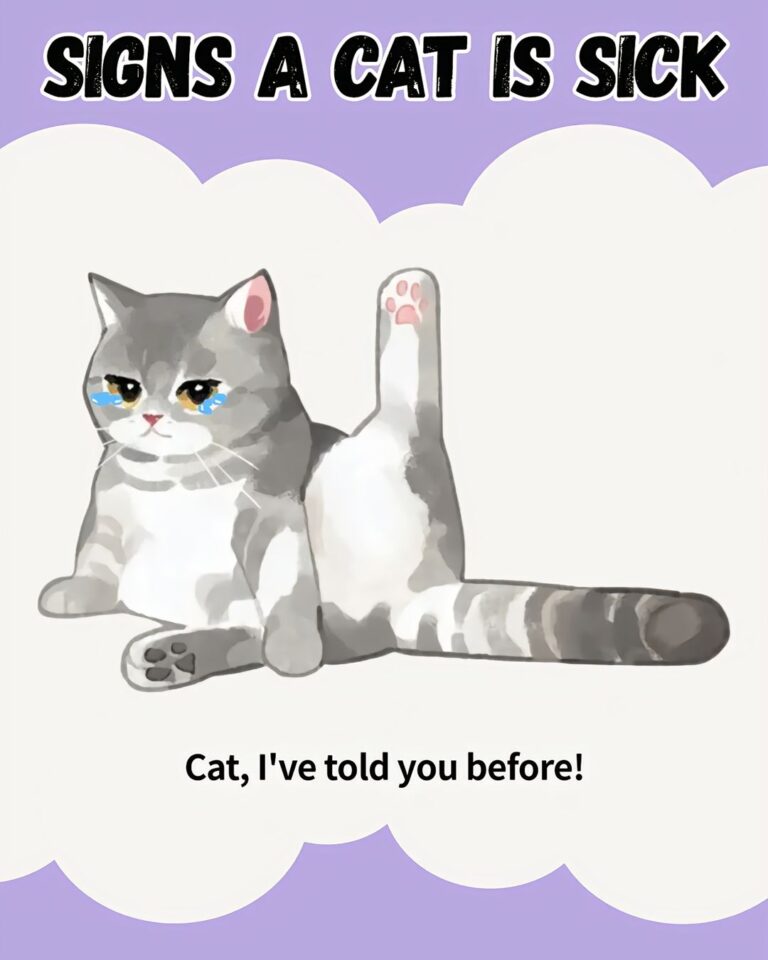
8 Warning Signs Your Cat is Sick: What Every Cat Parent Should Know
As a cat owner, we often find ourselves watching our furry companions with love and affection, observing their quirky behavior, and thinking about how lucky we are to have them in our lives. But it’s crucial to remember that cats can hide their pain, making it even more important to recognize the signs when something’s wrong. Early detection of illness can make all the difference, so here are 8 symptoms that could indicate your cat is sick—and what they mean.
1. Crouching Like a Hen: Discomfort and Pain
If you notice your cat crouching for long periods with a poor appetite, lack of energy, drooping ears, or vomiting, it’s more than just a bad day. This could indicate gastrointestinal problems, hairball syndrome, or Feline Infectious Peritonitis (FIP). When cats exhibit this behavior, they’re likely enduring significant discomfort.
What to Do: If this symptom persists, schedule a vet visit immediately. Cats in pain need prompt medical attention.
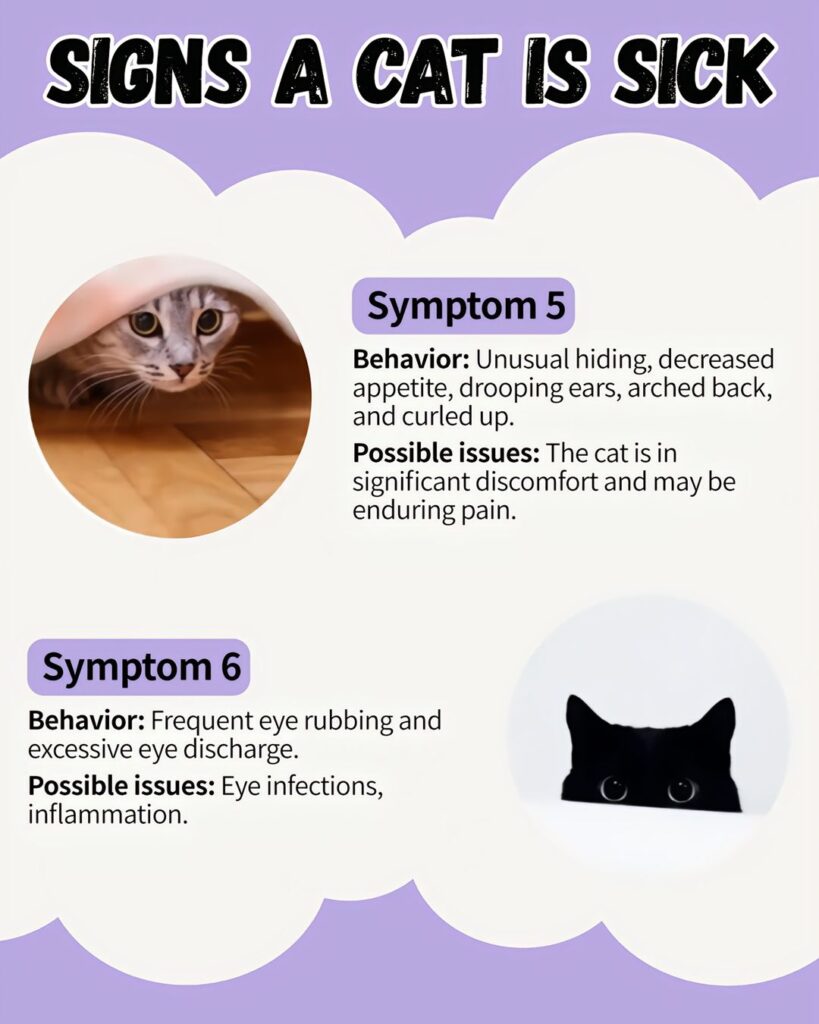
2. Excessive Scratching and Dirty Ears: An Unseen Battle
When your cat frequently scratches at its ears or shakes its head, it could be dealing with ear mites, Malassezia infections, or otitis media (an ear infection). Dirty or discolored ear discharge only adds to the urgency of this concern.
What to Do: Take your cat to the vet for an ear checkup and proper diagnosis. Treating ear infections early will prevent unnecessary discomfort.
3. Accidents Everywhere: Inappropriate Urination and Defecation
If your cat starts urinating or defecating outside the litter box, it could indicate heat cycles, territorial marking, or bladder problems. This could also point to an underlying infection or a behavioral issue.
What to Do: Keep track of where the accidents happen and consult your vet for possible underlying medical causes or behavioral therapy.
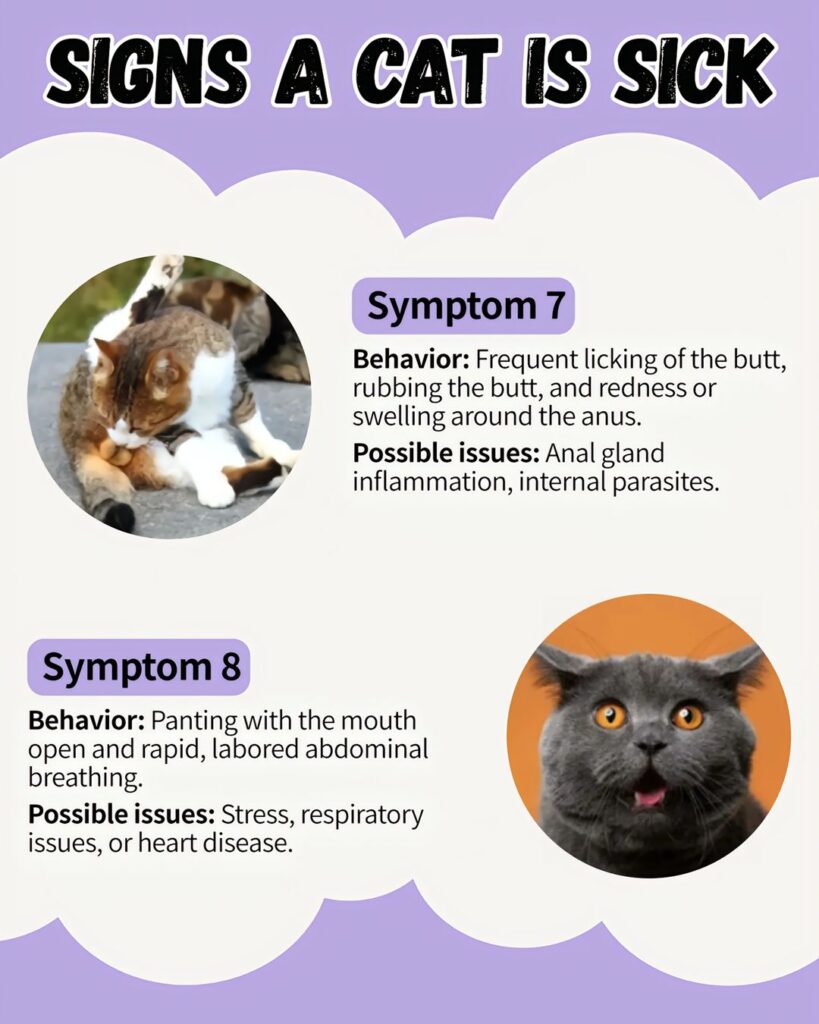
4. Frequent Vomiting: More Than Just Hairballs
While occasional vomiting is normal due to hairballs, if your cat vomits frequently, it could be a sign of gastritis, food poisoning, or even the ingestion of a foreign object. Regular vomiting can also indicate a more serious issue such as gastrointestinal disease.
What to Do: Take note of when and what your cat is vomiting. A vet visit is essential to rule out serious conditions.
5. Unusual Hiding and Arched Back: Sign of Pain
When a cat is sick, they may hide away, curl up with an arched back, and seem lethargic. If your cat’s appetite has decreased, their ears are drooping, and they’re showing signs of discomfort, they could be suffering from pain or illness.
What to Do: If your cat is hiding for long periods and showing signs of physical discomfort, this could signal an urgent need for a vet’s care.
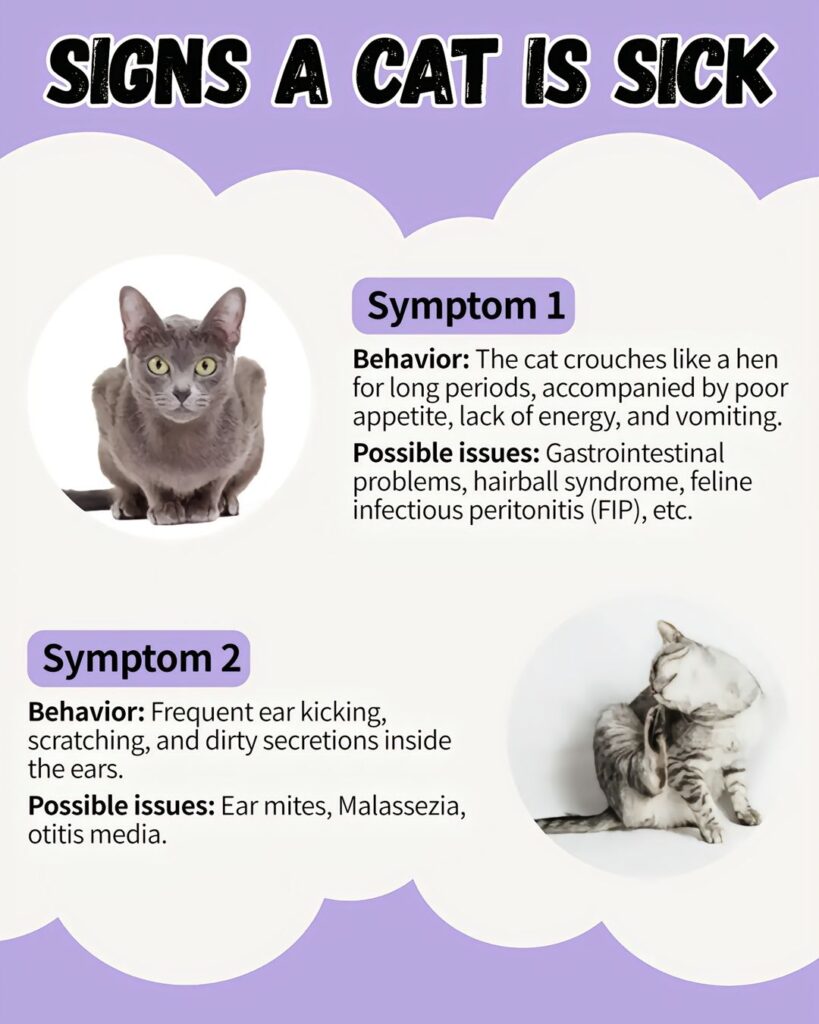
6. Excessive Eye Rubbing and Discharge: Eye Infections Are Serious
Constant rubbing of the eyes and excessive discharge can indicate eye infections, conjunctivitis, or even inflammation. If your cat is pawing at their eyes repeatedly, it may be due to something irritating their eyes, like an infection.
What to Do: If you notice eye discharge or persistent rubbing, a trip to the vet is necessary to get proper eye treatment.
7. Butt Licking and Rubbing: Anal Problems
If your cat is frequently licking or rubbing its butt, or you notice redness and swelling around the anus, they might be dealing with anal gland inflammation or internal parasites.
What to Do: Check for visible irritation and consult your vet for diagnosis. In some cases, internal parasites may need to be addressed with medications.
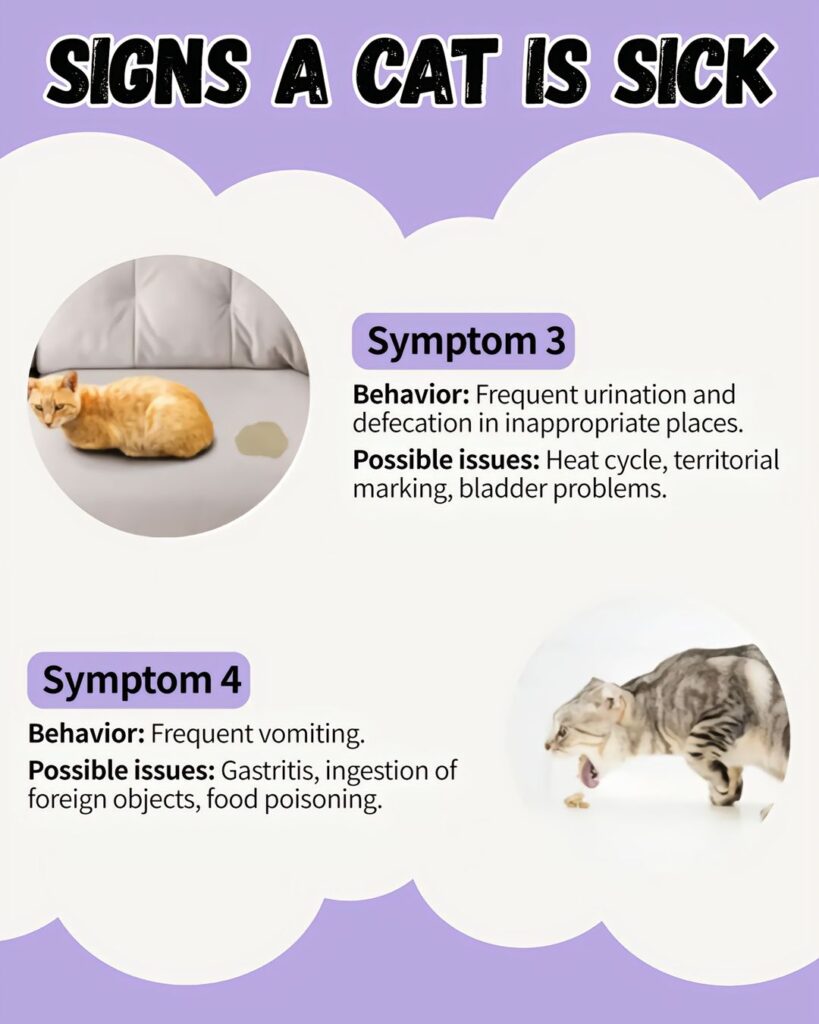
8. Labored Breathing and Panting: Serious Respiratory Issues
If your cat is panting with their mouth open or showing rapid, labored abdominal breathing, it could be a sign of stress, respiratory problems, or even heart disease.
What to Do: This symptom is serious and should not be ignored. Bring your cat to the vet immediately to rule out life-threatening conditions.
Conclusion: Act Fast to Protect Your Feline Friend
While cats can be skilled at hiding their discomfort, as a responsible pet owner, it’s up to you to recognize these red flags and take action. If your cat is showing any of these symptoms, don’t wait—contact your vet to get the proper diagnosis and ensure that your beloved pet is treated promptly.
Taking quick action can make all the difference in keeping your cat healthy and comfortable. The key to a long and happy life for your furry companion is early intervention, and you, as their devoted caretaker, play a crucial role in that.
Keep an eye on your cat’s behavior and trust your instincts. If something doesn’t seem right, don’t hesitate to seek professional help.
Share with fellow cat parents to raise awareness about these critical signs of illness. Together, we can ensure every cat has the chance to live a healthy, happy life! 🐾💖






